![]()
![]()
![]()
Use LEFT and RIGHT arrow keys to navigate between flashcards;
Use UP and DOWN arrow keys to flip the card;
H to show hint;
A reads text to speech;
37 Cards in this Set
- Front
- Back
|
Enlightenment |
A period beginning in the 1600s in which educated europeans changed thier outlook on life by seeing reason as the key to human progress |
|
|
Reason |
The ability to think logically about something |
|

Salon |
In france, an informational meeting of Philosophers during the Enlightenment |
|
|
Philosopher |
A scholar or thinker |
|

Government |
The people or groups that rule a particular region |
|
|
Individual Rights |
The Privileges of the people in a society |
|
|
The Roots of the Enlightenment |
They wanted to examine human life but for a reason. Did studies. Made change in many ways. Loved life and wanted to learn more. |
|
|
The Scientific Revolution |
They asked questions. They didn't always agree.The argued about government and examined what was correct in life. Thought that even they made mistakes. |
|
|
The Renaissance and the Reformation |
They used roots. People rebelled against the church. They celebrated their individuality. And the wanted to rule over the church. |
|
|
Classical and Christian Influences |
Influenced by classical culture. Ideas bloomed from ancient Greek and Rome. The learned many languages. They also studies art. |
|
|
New Ideas Versus Old Beliefs |
Questioned everything. They liked old belifes. Didn't like new ones. Wanted to change life. |
|
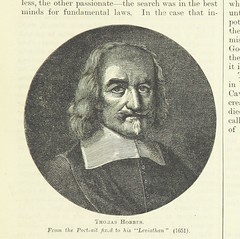
Thomas Hobbes: Absolute Rule by Kings |
Born in England in 1588. Wrote about politics and government. Studied by Oxford. He studied, mathematics and government. |
|
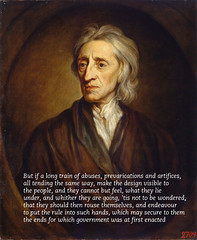
John Locke: Natural Rights |
He said that people have the right to do and say what they want. He belived that people should have a chance to prove their selves if they are being thrown in jail. |
|
|
Constitutional Monarchy |
Is a form of government in which a king or queen acts as Head of State. The ability to make and pass legislation resides with an elected Parliament, not with the Monarch. |
|
|
Bill of Rights |
The first ten amendments to the US Constitution, ratified in 1791 and guaranteeing such rights as the freedoms of speech, assembly, and worship. |
|
|
Social Contract |
An implicit agreement among the members of a society to cooperate for social benefits, for example by sacrificing some individual freedom for state protection. Theories of a social contract became popular in the 16th, 17th, and 18th centuries among theorists such as Thomas Hobbes, John Locke, and Jean-Jacques Rousseau, as a means of explaining the origin of government and the obligations of subjects. |
|
|
Natural Rights |
Rights that people supposedly have undernatural law. The Declaration of Independence of the United States lists life, liberty, and the pursuit of happiness as natural rights. |
|
|
Separation of Powers |
An act of vesting the legislative, executive, and judicial powers of government in separate bodies. |
|
|
Despotism |
Rule by a despot, or tryant |
|
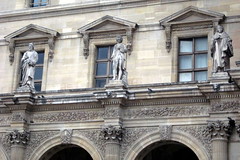
Baron de Montesquieu: Separation of powers |
Born in France in 1689. Attended a Catholic school. Later he became a lawyer. When his Uncle died he became the president. Wrote a book on John Locke about divided power. |
|
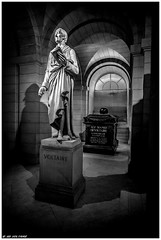
Voltaire: Religious Tolerance and Free Speech |
He believed that people should live in justice and happiness. He attacked the Clergy and attacked the French Court. |
|
|
Despotism |
Rule by deposit, or tryant |
|
|
Pen Name |
A name used in place of a writer's real name. |
|
|
Opperssion |
Cruel or unjust treatment |
|
|
Tolerance |
The acceptance of different beliefs and customs |
|
|
Criminology |
The scientific study of crime and punishment |
|
|
Capital Punishment |
Punishment by death; also called the death penalty |
|

Cesare Beccaria: The Rights Of The Accused |
He believed in criminology. He stressed about people to fair treatment. He received a degree in law. He scentensed people to death. |
|
|
The Impact Of The Enlightenment on Government |
Proposed new ideas. In new and exciting ways. They impacted the way people looked at life. They changed law. |
|
|
Enlightened Rule By Monarchs |
Tried to bring their ideas to life. They finally introduced their ideas to the scientific society. Didn't stop. They new they can change the world. |
|
|
The American and French Revolutians |
Influenced everyone. Used them in laws and constitutinal rights. Went in war and used law and justice. They new that they would win. |
|
|
Women of The Enlightenment |
Women enjoyed the same rights but didn't get them. |
|
|
Madame Geffrin |
Most respected women. Had finacial support to Encyclopedists. Drew many things and wrote. |
|
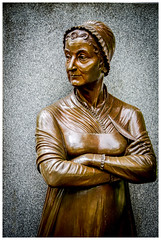
Abigail Adams |
Was married to John Adams. The leader of the French Revolutian |
|
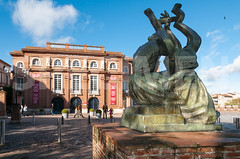
Olympe de Gouges |
The daughter of the butcher. Declared women's rights to have freedom |
|
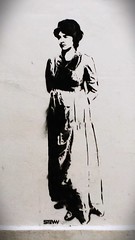
Mary Wollstonecraft |
Was an English writer. Published books and essays |
|
|
Chapter Summary |
I learned about the Enlightenment and how one person can change the voice of everyone. |

